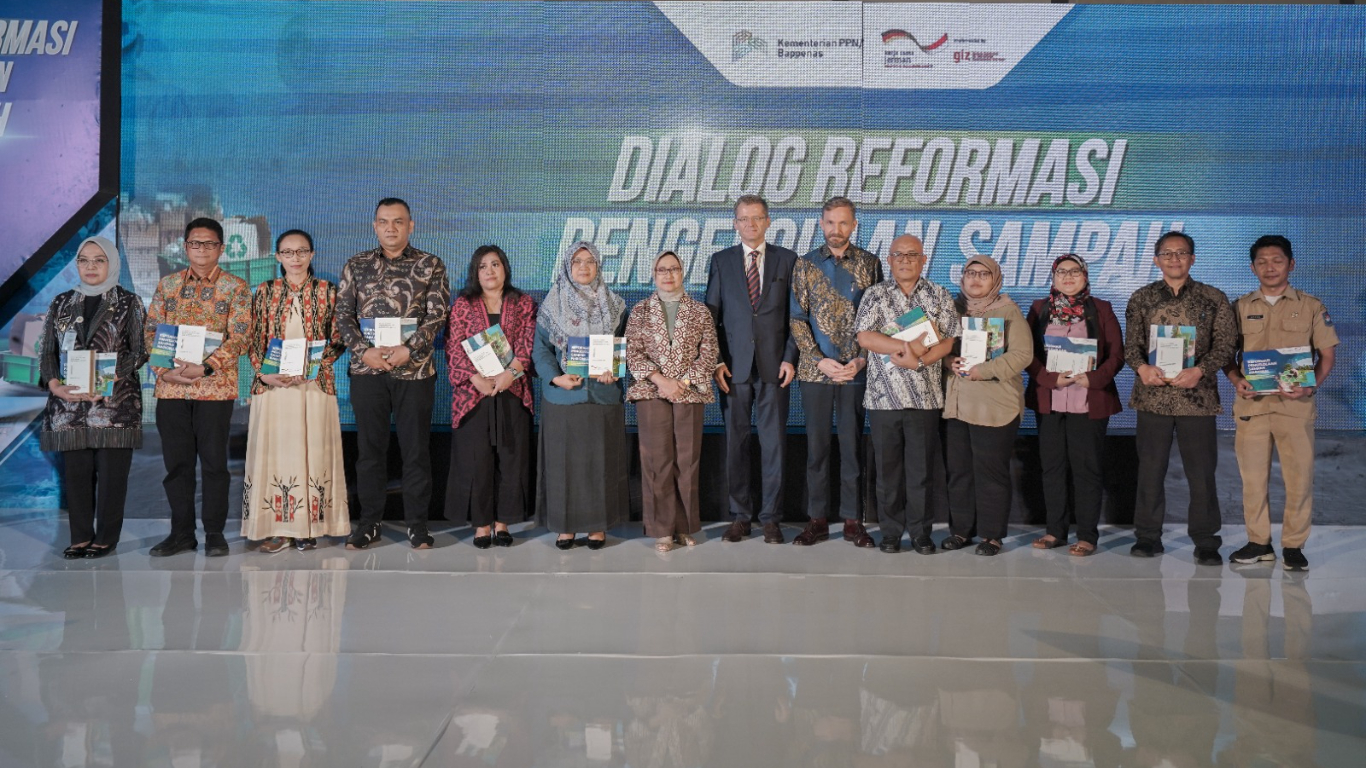Bappenas Collaborating with Germany to Reform Waste Management in Indonesia
Development News - Tue, 30 January 2024

JAKARTA – The Ministry of National Development Planning/Bappenas, in collaboration with the Federal Ministry for Economic Cooperation and Development (BMZ) of the Federal Republic of Germany, conducted a Waste Management Reform Dialogue to present priority steps for improving waste management that should be undertaken by the government, academics, businesses, media, and the public.
Bappenas’ Deputy for Maritime and Natural Resources Vivi Yulaswati explained Indonesia's commitment to waste management. "Waste management has become two development agendas in the current 2020-2024 National Medium-Term Development Plan, namely Priorities 5 and 6. In the future, the Integrated Waste Management Reform from upstream to downstream will also be one of the 20 super-priority transformation efforts or game changers in the 2025-2045 National Long-Term Development Plan," said Deputy Vivi on Tuesday (30/1).
There are six leverage factors for waste management reform in Indonesia, namely quality planning, actual and accurate waste data, stakeholder capacity, inclusive waste management institutions, strong funding, and binding mechanisms. These six leverage factors were formulated based on analyses and improvement efforts at the national and regional levels implemented in the Urban Emissions Reduction through Improved Waste Management Project (ERiC DKTI).
The Indonesia-Germany collaborative project, which started in 2020, is supported by the steering committee of government ministries, namely the Ministry of National Development Planning/Bappenas, the Ministry of Public Works and Public Housing, the Ministry of Environment and Forestry, and the Ministry of Home Affairs, to strengthen non-technical aspects of waste management, including planning, funding, institutions, and data management.
The focus of the project's interventions is on six pilot regencies/cities: Bogor Regency, Bukittinggi City, Jambi City, Cirebon City, Malang City, and Denpasar City. Some results achieved during the project include six policy recommendation analysis reports, three regional regulations on adjusting waste management fee rates in Bogor Regency, Bukittinggi City, and Cirebon City, guidance on waste sorting for more than 558 households in the six pilot regencies/cities, the development of a Digital Calculator for Waste Management Fee Calculation, and the strengthening of cross-ministry data interoperability for waste management.
The Waste Management Reform Dialogue event was attended by representatives from the German government, including Deputy Head of Mission of the German Embassy to Indonesia Thomas Graf.
"The German government appreciates and will continue to support the efforts of the Indonesian government in reforming waste management. Hopefully, the recommendations produced from this project can be implemented soon, so that waste management in Indonesia can be more integrated and sustainable," expressed Thomas.
